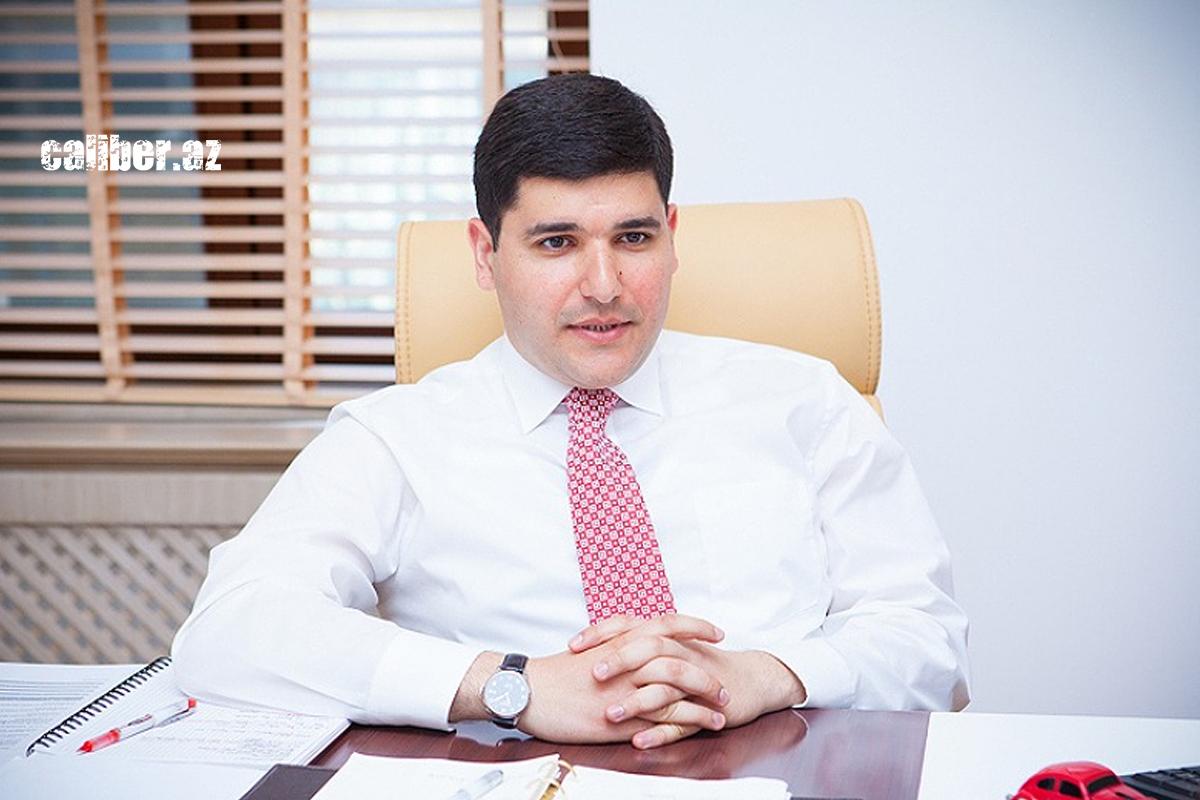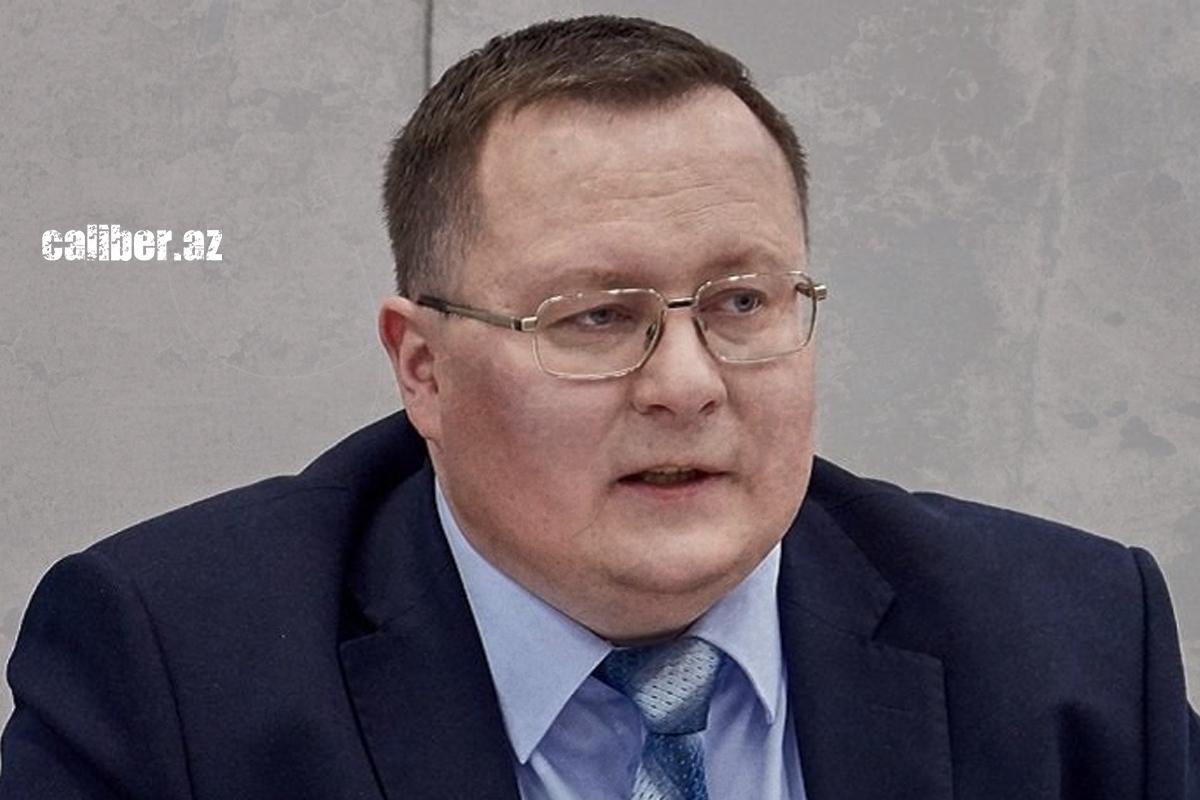Ankara-Yerevan: Nuances of normalization of relations
Farhad Mammadov and Alexander Razuvayev for Caliber.Az
INTERVIEWS 14 July 2022 - 10:27
| Huseyn Safarov Caliber.Az |
On July 11, Armenian Prime Minister Nikol Pashinyan had a telephone conversation with Turkish President Recep Tayyip Erdogan. Pashinyan congratulated the Turkish leader on Eid al-Adha. Erdogan, in turn, congratulated the Armenian Prime Minister on the Vardavar holiday. The Armenian government also reported that the two leaders stressed the importance of the bilateral process of regulation of relations, which will contribute to strengthening peace and stability in the region. The sides expressed hope that the agreements reached at the meeting of the special representatives of the two countries on July 1 will be implemented in the near future.
However, it is worth recalling that the process of normalization of Armenian-Turkish relations was launched long ago, but the situation is still almost at the starting line. Whether the phone conversation between the Armenian premier and the Turkish president means that things have moved on and how this will affect the Armenian-Azerbaijani peace process is still a big question.
The Azerbaijani political analyst Farhad Mammadov and the Russian economist and expert on Eurasia Alexander Razuvayev shared their opinion on the matter with Caliber.Az.

Mammadov believes that after several rounds of negotiations between Armenia and Turkey, the negotiators have an understanding of the path they can follow. In the expert's opinion, the process of normalization of Armenian-Turkish relations can take place in one of two formats: from more to less or from less to more.
"In the first case, more significant issues are solved, such as the establishment of diplomatic relations, the official opening of borders, etc. Then there are steps that are mostly technical in nature. Now we see that the process goes from less to more, primarily because of the reluctance of Armenians to recognize the root cause of the closure of the Armenian-Turkish border, that is, the occupation of Azerbaijani territories by Armenia. Therefore, no matter how much the Armenian side says that the process must go on without preconditions, Türkiye's main condition is the normalization of relations with Azerbaijan. In other words, this is the least with which the Armenian side must start.
If Armenia continues to advance the theses about the status of Karabakh, which is tantamount to territorial claims to Azerbaijan, and refuses to sign a peace treaty, then we will not have to speak about the full normalization of Armenian-Turkish relations. Undoubtedly, there are some solutions that will soon be implemented, but we must realize that any element of normalization of Armenian-Turkish relations is conditioned and must be conditioned by specific decisions on the Armenian-Azerbaijani settlement," the political analyst said.
The Azerbaijani analyst recalled that there are three tracks of mutual relations between Azerbaijan and Armenia: opening of communication, demarcation, delimitation of borders, and signing of a peace treaty.
"As of today, Yerevan and Baku have the most developments in the unblocking of communications. Through Turkish-Armenian negotiations, efforts are also being made to restore communication routes. That is, in this case, there is no question of opening the borders. Perhaps, the issues of partial opening of the borders, conditionally - in one point for the citizens of the third countries, air cargo transportation, etc., but no more. It is in the direction of unblocking communications that the collective work is going on.
As for the establishment of diplomatic relations between Türkiye and Armenia, it will be possible after signing a peace treaty between Yerevan and Baku. In any case, any step in the Armenian-Turkish normalization should be conditioned by the progress in the Armenian-Azerbaijani track," the expert believes.
Nevertheless, the Azerbaijani political analyst believes that there is some progress in Armenian-Turkish relations, but further, everything depends on the behavior, decisions, and statements of the Armenian leadership.
"Over the last 2-3 months," Mammadov says. "We have witnessed that the anti-Turkish and anti-Azerbaijani hysteria raised by the Armenian parliamentary opposition has not only not gained critical mass, but is even classified as a marginal phenomenon. Therefore, all the arguments of the Armenian side that the Armenian society allegedly does not perceive the rapprochement with Türkiye and Azerbaijan, that it needs more time, etc., are untenable and cannot be taken seriously. The Turkish and Azerbaijani sides put forward demands to Armenia to demonstrate political will and go for full-scale normalization, which consists in signing a peace treaty and renouncing territorial claims to each other."

In turn, Russian expert Alexander Razuvayev is sure that all three former Soviet republics of the South Caucasus - Azerbaijan, Armenia, and Georgia, as well as the countries of the region - Türkiye, Iran, and Russia, are interested in normal good-neighborly relations.
"Certainly, all of these countries are interested in active trade and, therefore, in unblocking all trade routes. This is also beneficial for Armenia, whose economy has been hit hard by the coronavirus pandemic. Because of the pandemic in Armenia, the sphere of international tourism has severely weakened. In addition, there is a recession in Russia's economy because of Western sanctions, and therefore the demand for migrant workers from Armenia has fallen, which also hits the Armenian economy. In this context, from an economic point of view, it would be logical for Armenia to normalize its relations with Türkiye and Azerbaijan. Everyone will benefit from this. I think that Pashinyan is well aware of the economic benefits for his country, and that's why he wants to build normal relations both with Ankara and Baku," the Russian expert said.
However, according to Razuvayev, there are forces that are against this rapprochement.
"First of all, it is the Armenian diaspora, where nationalist sentiments are strong enough. And of course, the West opposes the normalization of Armenian-Turkish and Armenian-Azerbaijani relations, which is interested in Karabakh remaining a hotspot in the South Caucasus. The West as a whole is interested in the peoples of Eurasia quarreling with each other. We can only hope that the Western countries will not achieve what they want and peace will prevail in the region, respectively, and the well-being of the citizens of Azerbaijan, Armenia, and Türkiye will grow," the Eurasia expert concluded.
Caliber.Az
|
1
|
High time to declare US ambassador persona non grata Mr. Libby, take your suitcase and leave for Washington
05 May 2024 - 12:06
|
|
2
|
Factory burst into flames in Germany PHOTO / VIDEO
03 May 2024 - 16:19
|
|
3
|
Profiling Archbishop Bagrat Galstanyan – Tavush region protest leader
03 May 2024 - 17:20
|
|
4
|
West destabilising situation in Georgia Security, impunity for (foreign) agents
05 May 2024 - 17:28
|
|
5
|
Will Azerbaijan's diplomatic efforts bring change? UNESCO's crucial crossroad
03 May 2024 - 17:13
|
Azerbaijan, Uzbekistan to collaborate in health insurance sector
06 May 2024 - 20:36
Turkish military neutralises seven PKK/YPG terrorists in northern Syria
06 May 2024 - 20:32
Kremlin says Russia investigating alleged French troops deployment in Ukraine
06 May 2024 - 20:14
Australia denounces China over "unsafe" aerial confrontation
06 May 2024 - 20:14
Poland has secret weapon to shift Donald Trump against Russian leader
06 May 2024 - 19:59
The Armenian Church's detrimental role in resisting peace initiatives
06 May 2024 - 19:55
Slovak PM arrives in Azerbaijan for official visit
06 May 2024 - 19:52
US ambassador visits school in Azerbaijan’s Fuzuli
06 May 2024 - 19:50
IAEA chief visits Iran for key nuclear talks
06 May 2024 - 19:43
Belgium starts discussions about possible EU trade sanctions against Israel
06 May 2024 - 19:25
Azerbaijani conference participants discuss modern international legal tools
06 May 2024 - 19:06
Iran to begin construction of new nuclear reactor
06 May 2024 - 18:49
40 pillars installed along Azerbaijan-Armenia border as geodetic measurements progress
06 May 2024 - 18:40
European Commission hopes China to influence Russia
06 May 2024 - 18:33
Armenian president to leave for US
06 May 2024 - 18:25
Egypt preventing escalation of situation between Israel, Hamas
06 May 2024 - 18:14
Slovak PM embarks on visit to Azerbaijan
06 May 2024 - 17:55
US ambassador hails Azerbaijan's efforts in rebuilding Fuzuli
06 May 2024 - 17:38
Poland not to send troops to Ukraine
06 May 2024 - 17:20
Germany recalls its ambassador from Russia
06 May 2024 - 17:02
Defence Turk: Azerbaijan to buy DITA wheeled self-propelled howitzers
PHOTO06 May 2024 - 17:02
Walking a tightrope between pressure and objectivity
Russia's diplomatic tactics with Armenia06 May 2024 - 16:45
Azerbaijani State Border Service chief meets King Charles III at Royal Windsor Horse Show
PHOTO/VIDEO06 May 2024 - 16:31
Human remains discovered in Gubadli
06 May 2024 - 16:25
Azerbaijan showcases its tourism opportunities at ATM Dubai 2024
PHOTO06 May 2024 - 16:15
Tensions rise amidst concerns over potential Gaza offensive
US halts ammunition supply to Israel06 May 2024 - 16:06
FT: Discussions underway to bring Arab peacekeepers into Palestine
06 May 2024 - 15:48
National Assembly president: Opposition wants to drag Armenia into war
06 May 2024 - 15:43
US ambassador expresses delight at visit to Shusha
06 May 2024 - 15:31
Armenian FM advocates for recording commitments of Yerevan and Baku at upcoming Almaty meeting
06 May 2024 - 15:29
India – Oman trade deal and balance of power in the Gulf
Strategic convergence06 May 2024 - 15:19
Armenia pushes for unrestricted opening of transport routes with Azerbaijan
06 May 2024 - 15:13
Armenian Parliament Speaker urges clarity and commitment in peace treaty negotiations
06 May 2024 - 14:58
US ambassador discuss return of former IDPs in Shusha
06 May 2024 - 14:41
Taylor: ADB recommends use of 'green' cement in Azerbaijan
06 May 2024 - 14:22
Navigating existential challenges in changing world
EU at a crossroads06 May 2024 - 14:10
Russia preparing non-strategic nuclear strike drills
06 May 2024 - 14:03
Bloomberg: Western sanctions block Russian LNG exports
06 May 2024 - 13:47
US ambassador visits Shusha
06 May 2024 - 13:32
Türkiye's defence breakthrough: Successful integration of UAVs, "smart" bombs, electro-optical systems
VIDEO06 May 2024 - 13:18
